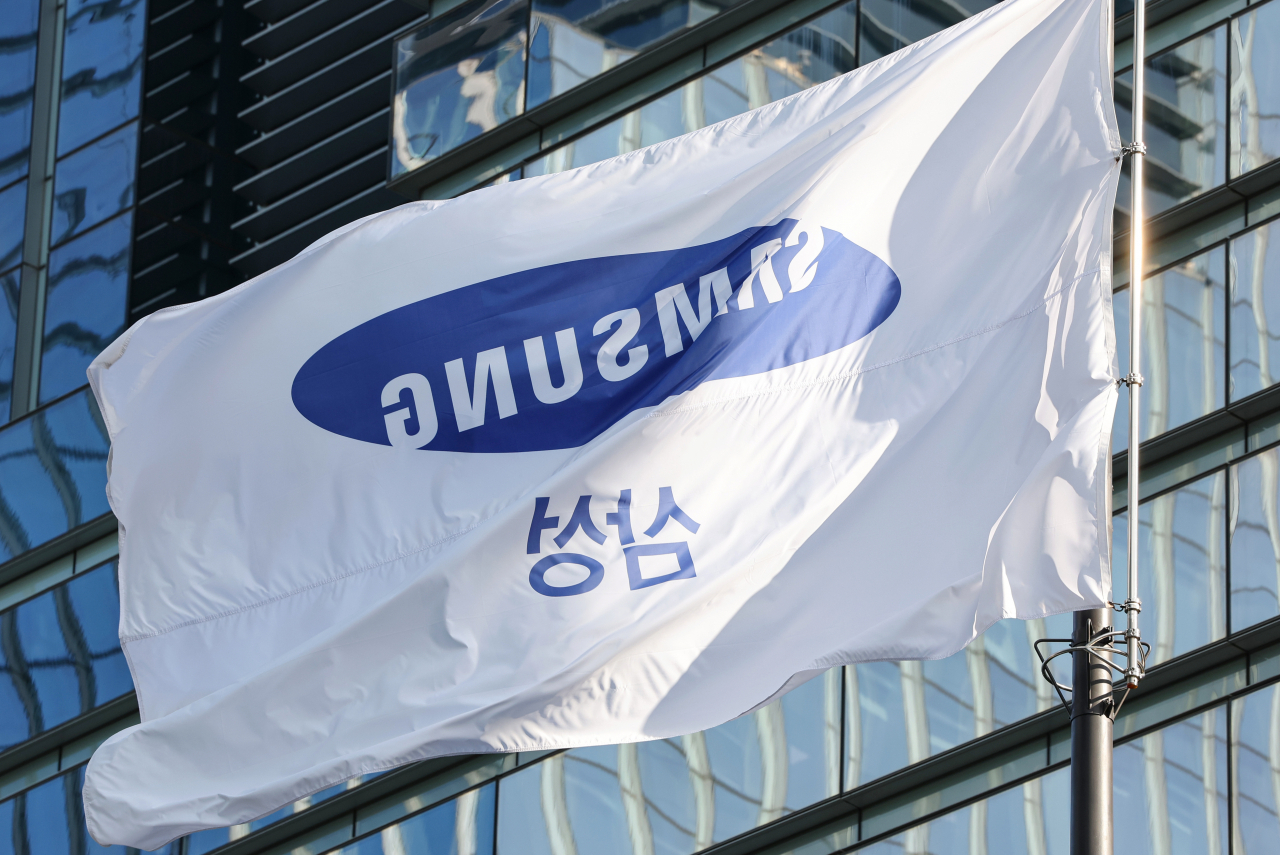 |
Samsung Electronics' office building in Seoul (Yonhap) |
Samsung Electronics said Tuesday it reduced its deficit in the memory chip business in the July-September period while posting better-than-expected profits in mobile and display businesses.
Samsung's device solutions division in charge of the company’s semiconductor business marked losses of 3.75 trillion won ($2.78 billion) for the division's third consecutive quarter of losses. So far this year, its chip losses have amounted to 12.7 trillion won, the company said in its third-quarter earnings conference call earlier in the day.
But the world's largest memory chip maker predicted it could elevate profitability in the coming months as demand for chips has improved throughout the year.
"We're planning to expand the sales proportion of chips used in high-profit products, including automobiles, and actively expand HBM3 mass production sales to meet the increasing demand for generative AI," said Kim Jae-jun, executive vice president in charge of memory marketing strategy.
The Samsung executive expected the company's inventory levels to decrease at a faster rate, in line with the demand improvement and ongoing production cuts.
Samsung also announced that it would inject about 53.7 trillion won in facility investment this year to build up the company’s growth potential, despite a downturn in earnings. The amount will likely mark the tech giant’s largest-ever annual investment plan.
Of this year’s capital spending, 47.5 trillion won and 3.1 trillion won will be injected into its chip business and its display panel affiliate Samsung Display, respectively.
In the third quarter alone, Samsung’s capital expenditure came to 11.4 trillion won, while the firm invested 10.2 trillion won and 700 billion won, respectively, in the device solutions division and the display business, the company said.
“Spending on memory is expected to be concentrated in Pyeongtaek, which includes completing the P3 infrastructure and progressing the P4 framework for mid-to-long-term supply. Some proportions of investment for research and development will also be increased to strengthen our technological leadership,” a Samsung Electronics official said.
“We remain committed to investing in new technologies, such as securing industry-leading High Bandwidth Memory production capacity,” the official added. "For Samsung Display, investments will mainly focus on expanding capacity for flexible displays and OLED products for IT applications."
Samsung’s earnings report came before the Seoul stock market opened Tuesday. The world's largest memory chip and smartphone maker's third-quarter operating profit came to 2.43 trillion won on a consolidated basis, a plunge of 77.6 percent from a year ago.
It was similar to the company's estimate of 2.4 trillion won in its earnings guidance earlier this month. The figure also exceeded the consensus of 2.2 trillion won by local analysts provided by market intelligence firm FnGuide.
The tech giant logged more than 1 trillion won in quarterly operating profit for the first time this year, following the first quarter’s 640.2 billion won and the second quarter’s 668.5 billion won.
Sales declined by 12.2 percent on-year to 67.4 trillion won, slightly exceeding the firm's previously estimated 67 trillion won. The sales estimate was, however, lower than the market consensus of 67.7 trillion won.
Net income fell 37.8 percent on-year to 5.84 trillion won over the cited period.
Samsung's device experience division, in charge of mobile devices and gadgets achieved an operating profit of 3.73 trillion won, while the consumer appliances and TV division recorded an operating profit of 380 billion won over the cited period.
The display business earned 1.94 trillion won in operating profit. For the mobile display business, Samsung Display was able to achieve solid results by focusing on premium OLED, with the polarizing trend intensifying between high-end and midrange-and-below markets.
Harman, the tech giant's audio and automotive component subsidiary, posted a quarterly record operating profit of 450 billion won for the July-September period. It was led by higher sales of car audio products amid an overall increase in orders from automotive customers as well as consumer audio products such as portable speakers, the company said.
On the back of the rosy earnings outlook, Samsung shares opened slightly higher at 67,600 won on Tuesday and once hit up to 68,300 won. But by the end of trading it had lost 0.59 percent from the previous session to close at 66,900 won.







![[Today’s K-pop] Blackpink’s Jennie, Lisa invited to Coachella as solo acts](http://res.heraldm.com/phpwas/restmb_idxmake.php?idx=644&simg=/content/image/2024/11/21/20241121050099_0.jpg)